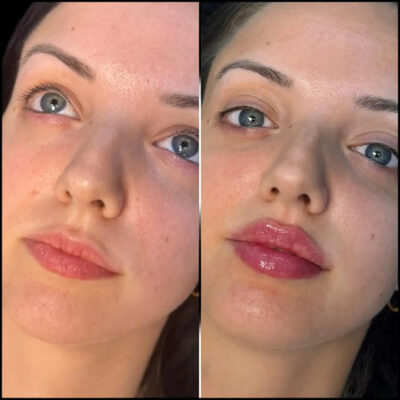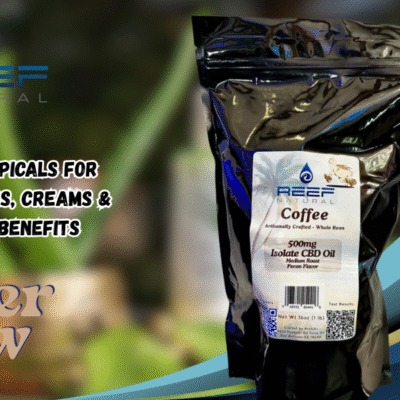Gastroesophageal reflux disease (GERD), commonly referred to as acid reflux, is a chronic digestive condition that affects millions of people worldwide. While occasional heartburn is normal, persistent reflux can damage the esophagus and disrupt daily life. Understanding its causes, recognizing the symptoms, and exploring treatment options can help individuals manage GERD effectively and maintain a better quality of life.
Zoraft Double Action is a combination pharmaceutical product formulated to provide fast and long-lasting relief from symptoms of acid reflux, heartburn, and indigestion.
What is GERD?
GERD occurs when stomach acid or, occasionally, stomach contents flow back into the esophagus—the tube connecting the mouth and stomach. This backwash, known as reflux, irritates the lining of the esophagus, leading to discomfort and potential complications if left untreated.
The lower esophageal sphincter (LES), a ring-like muscle at the junction between the esophagus and stomach, plays a vital role in preventing reflux. When this muscle weakens or relaxes inappropriately, stomach acid can escape upward, causing symptoms of GERD.
Common Causes and Risk Factors
While GERD can affect anyone, several factors increase its likelihood:
-
Weakened LES function – The LES may relax too often or fail to close properly.
-
Obesity – Excess abdominal pressure can push stomach contents upward.
-
Hiatal hernia – A condition where part of the stomach pushes into the chest cavity, weakening the LES.
-
Dietary triggers – Spicy foods, citrus fruits, chocolate, coffee, carbonated beverages, and fatty meals can promote reflux.
-
Lifestyle habits – Smoking, alcohol consumption, and eating large meals close to bedtime can worsen symptoms.
-
Pregnancy – Hormonal changes and increased abdominal pressure can cause temporary reflux.
-
Certain medications – Drugs like antihistamines, calcium channel blockers, sedatives, and some antidepressants may relax the LES.
Recognizing the Symptoms
GERD symptoms can vary in severity and frequency, but common signs include:
-
Heartburn – A burning sensation in the chest, often after eating or at night.
-
Regurgitation – A sour or bitter taste in the mouth caused by acid backing up.
-
Difficulty swallowing (dysphagia) – Feeling as if food is stuck in the throat or chest.
-
Chronic cough – Especially at night or after meals.
-
Sore throat or hoarseness – Acid irritation can affect the voice box.
-
Chest pain – Sometimes mistaken for heart-related pain.
If left untreated, GERD can lead to complications like esophagitis (inflammation of the esophagus), esophageal strictures (narrowing), Barrett’s esophagus (a precancerous condition), and, in rare cases, esophageal cancer.
Diagnosis of GERD
Doctors typically diagnose GERD based on symptoms and medical history, but additional tests may be recommended to confirm the condition or assess damage:
-
Endoscopy – A thin, flexible tube with a camera examines the esophagus for inflammation or damage.
-
pH monitoring – Measures acid levels in the esophagus over 24 hours.
-
Esophageal manometry – Evaluates LES function and muscle contractions in the esophagus.
-
Barium swallow X-ray – Highlights the shape and condition of the esophagus and stomach.
Lifestyle Changes for Managing GERD
Mild GERD symptoms can often be controlled through simple adjustments:
-
Maintain a healthy weight – Losing excess weight reduces abdominal pressure.
-
Eat smaller, more frequent meals – Prevents excessive stomach distension.
-
Avoid trigger foods and drinks – Keep a symptom diary to identify personal triggers.
-
Stay upright after eating – Wait at least 2–3 hours before lying down.
-
Elevate the head while sleeping – Raising the bed head by 6–8 inches can prevent nighttime reflux.
-
Quit smoking – Smoking weakens the LES and reduces saliva production.
-
Limit alcohol intake – Alcohol relaxes the LES and can irritate the esophagus.
Medical Treatments
If lifestyle changes alone aren’t enough, medical intervention may be necessary. Common options include:
-
Antacids – Provide quick relief by neutralizing stomach acid (e.g., calcium carbonate).
-
H2 receptor blockers – Reduce acid production and provide longer-lasting relief (e.g., ranitidine, famotidine).
-
Proton pump inhibitors (PPIs) – Strong acid reducers that allow healing of the esophagus (e.g., omeprazole, esomeprazole).
-
Prokinetics – Help strengthen the LES and improve stomach emptying.
Long-term use of certain medications, especially PPIs, should be monitored by a healthcare professional due to potential side effects like nutrient deficiencies or bone loss.
Surgical Options
For severe GERD that doesn’t respond to medication or lifestyle changes, surgery may be recommended:
-
Fundoplication – The top of the stomach is wrapped around the LES to strengthen it.
-
LINX device – A ring of magnetic beads is placed around the LES to help it stay closed but still allow swallowing.
These procedures can significantly improve symptoms and reduce reliance on long-term medications.
Potential Complications
Untreated GERD can cause:
-
Esophagitis – Chronic inflammation that can lead to bleeding and ulcers.
-
Esophageal strictures – Scar tissue narrows the esophagus, making swallowing difficult.
-
Barrett’s esophagus – Long-term acid exposure changes the lining of the esophagus, increasing cancer risk.
-
Respiratory issues – Acid reflux can trigger asthma, chronic cough, or pneumonia from aspiration.
When to See a Doctor
Seek medical attention if you experience:
-
Frequent or severe symptoms despite lifestyle changes.
-
Difficulty swallowing or unexplained weight loss.
-
Vomiting blood or black, tarry stools.
-
Persistent chest pain that may mimic heart attack symptoms.
Final Thoughts
GERD is a common yet often underestimated digestive disorder that can significantly impact daily comfort and long-term health. Fortunately, a combination of lifestyle modifications, medical treatment, and, in some cases, surgical intervention can provide lasting relief. By understanding triggers, making proactive changes, and seeking timely medical care, individuals with GERD can protect their esophagus and enjoy a better quality of life.


